[gallery id=1383]
Tony Whitehorn, Hyundai UK’s president and chief executive, is not a man averse to sticking his neck out and leading his brand in new directions when it comes to exploring innovative ways to sell cars.
“We have entered into the unknown. We have invested an awful lot of money in this, but that is the kind of business we are. We take risks and go places that others might not,” he said.
[gallery id=1383]
Hyundai is proud of its trailblazer status – its Rockar-partnered stores in shopping centres, its online sales, its latest model available with every type of electric drivetrain – but will seven-day working and overnight servicing be a bridge too far for its bricks-and-mortar dealerships?
Tony Whitehorn, Hyundai UK’s president and chief executive, is not a man averse to sticking his neck out and leading his brand in new directions when it comes to exploring innovative ways to sell cars.
“We have entered into the unknown. We have invested an awful lot of money in this, but that is the kind of business we are. We take risks and go places that others might not,” he said.
That willingness to experiment is most evident in the brand’s partnership with Rockar. In November 2014, Hyundai was the first manufacturer to team up with Simon Dixon, the former director of Dixon Motors, to establish his first Rockar store at the Bluewater Shopping Centre. In January of this year, the brand opened its ‘Click to Buy’ online retail platform.
Whitehorn said: “I’m proud of the fact that we have led the way in an industry that is just now waking up to the fact that consumers demand more choice and the ability to buy their cars and get their cars serviced in the same way that they might buy clothes and electrical goods.
“Go in to Westfield now and you will see Bentley and DS stores. At Lakeside, Seat has a facility. Other manufacturers are waking up to the changing landscape.”
Whitehorn insisted that the Rockar model has been a success in sales terms: “We had circa 2,000 people buy out of the Rockar stores. 90% of those people live within 10 miles. If I had put in a dealership that had been going for just over a year and they had bought that many vehicles, I would be delighted.”
Rockar’s Bluewater Hyundai store has had 266,000 visitors in the two years since opening in November 2014 and the Westfield branch had about 197,000 in 12 months following its December 2015 opening. The centres attract an annual combined footfall of about 27 million visitors.
When AM spoke to Whitehorn following the launch of ‘Click to Buy’, Hyundai’s website had 127,000 visitors in its first three weeks. This generated 8,000 vehicle configurations, 467 registered users and 30 sales.
However, Whitehorn makes no bones about the value of Hyundai’s new ventures in sheer marketing terms.
The Rockar stores, which feature zero-commission ‘angels’ rather than traditional sales staff, have also succeeded in reducing the average age of a customer from 52 to 37, with 54% of those being women.
Click to Buy
Hyundai’s digital sales platform can sell vehicles in the time it takes to refuel a car at a petrol station, according to Whitehorn.
Cash sales completed via Click to Buy can be completed in as little as five minutes and will see dealers’ customer touchpoint reduced to a handover slot at the showroom or a home delivery slot.
For finance customers, dealers are kept in the loop as Hyundai currently lacks an online signature service, meaning they must travel to a dealership to go over paperwork. However, rival systems, such as Order Online by Peugeot, do offer an eSignature service.
Trade-in cars can also be taken to the dealership on the selected handover date or will be collected from the customer at home – in an evening or at a weekend, if requested. Valuations on a potential customer’s trade-in are provided online.
Whitehorn said Click to Buy is good for customers and “fantastic for the dealer”, stating that dealers achieve a full margin on every sale, but will have saved the cost of a sales executive’s commission.
While Click to Buy plays into a changing trend that has seen customers shy away from haggling over a vehicle’s price (Auto Trader’s Market Report found 56% of consumers who had bought a new or used car had paid the asking price), Whitehorn conceded that consumers may get a better deal if they choose to go directly to their local dealer.
He said many customers will continue to do just that, emphasising an ongoing desire for customers to benefit from the reassurance of a relationship with their local franchise.
“People want a relationship with their local dealership, so they know where they can go for aftersales and who they might turn to should they have any issues,” said Whitehorn.
Hyundai has no fixed targets for its online sales and the platform’s potential and customers’ appetite for online car-buying remains an unknown quantity.
Whitehorn said: “In terms of the potential of the market, the number of people that might buy a car online, I really don’t know.
“I’d love a crystal ball. What I am sure about is that 2.6 million cars were bought in dealerships last year and that will largely be the same in 2017. Ask me if that will be the case in 30 or 40 years’ time and I’d say that I doubt it.”
Pushing for profit
Hyundai’s registrations last year were up 4.88%, from 2015’s 88,417 to 92,419.
The results mark a consistent rise in registrations since the 2008 financial crisis and resulting scrappage bonus scheme (Hyundai’s registrations doubled, from 28,036 in 2008, to 56,726 in 2009).
Its market share rose to 3.43% in 2016, up from 3.35% the year before. Last year was the second consecutive rise in market share, following dips in 2013 and 2014 that interrupted consistent increases since 2007’s figure of 1.24%.
Despite its record registrations, 2016 was still a challenge for Hyundai and its network of 158 sites, according to Whitehorn. He put some of this down to its model range.
“We only had one new vehicle launch last year. It was always going to be tough.”
Speaking to AM at last October’s launch of the Ioniq hybrid and EV, Whitehorn reported that the network’s return on sales (RoS) fell to 1% at the end of August – down 0.1 percentage points year-on-year.
He said the brand had changed 70% of its network since 2009 and it remained a “very young network” that lacked the established customer base of other brands. He said the 25% of the network that had been with the brand longer were making “over 2%”.
 Whitehorn was unwilling to share the eventual RoS outcome for his network in 2016, only stating that it was above the 0.8% industry average.
Whitehorn was unwilling to share the eventual RoS outcome for his network in 2016, only stating that it was above the 0.8% industry average.
Average turnover among Hyundai franchisees had also risen above 2015’s levels and was, again, above the industry average, he said.
Whitehorn is positive about the year ahead, following a strong start to the year, which has seen Hyundai achieve 27,856 registrations to the end of March (up 9.8% year-on-year), taking its market share to 3.4% (up from 3.29% in Q1 2016).
He said: “The SMMT forecast, and we forecast, the market to be down by 4% [in 2017] but there is still momentum, GDP is at 2% and the uncertainty of this year is starting to dissolve a bit.
“As time goes on, people are feeling a little more comfortable about what is happening economically and politically and people still need to eat and drink and buy cars as they did before.”
Factoring in aftersales
Whitehorn insists that his drive to see his dealer network more widely achieve an RoS figure closer to 2% will be backed up by increasing aftersales revenues.
He is confident that a growing car parc and greater utilisation of workshop time will reap rewards, stating that the network’s retail workshop hours had risen 4% year-on-year in 2016.
Whitehorn added: “We currently have a level of absorption of 51% and we need to be at 60%. That’s important because the dealer network can make much, much more margin on a labour hour than they do on a car as a package.”
Again, Hyundai is attempting to embrace digitalisation, with online service booking and a platform facilitating the sale of vehicle accessories, which can be posted direct or fitted by the dealer.
The introduction of the eSENSEtials servicing programme also aims to boost retention among the owners of cars outside the brand’s five-year warranty.
It offers a three-tier system of maintenance plan options, which extend to all applicable engine management software updates and include 12 months of free AA Roadside Assistance.
The servicing packages are priced from £99 for the base service to £219 for the full offering.
Hyundai Ioniq owners will benefit from the introduction of EV technical training from an initial 22 specialist centres into the entire Hyundai network.
Whitehorn is keen to see dealers’ assets made to sweat: “Some of our dealers are very efficient in their workshop operations, but still leave too much slack in the day. One thing we are keeping an eye on is service capacity and, really, this sort of thing needs to change. The workshops need to be fully utilised whenever possible.”
Hyundai’s early adoption of alternative sales platforms has grown an awareness of the need for convenience and ever-greater flexibility. Just as customers now want the option of buying a car from their sofa, they want their cars serviced at their convenience, Whitehorn said.
“I can see a time when workshops are required to open all day on a Saturday and a Sunday.
“I see a time when a customer might be able to drop their car off at night and collect it again, fully serviced, first thing the next day. That would certainly make best use of courtesy cars that are currently only used during the daytime at most franchises.
“If there’s one thing we are learning, it is that customer demands are changing fast, and it’s essential that we change with them.”
Gauging the mood
Whitehorn said his biggest challenges are coming from a PCP-prompted shift in the market towards premium vehicles.
“For a pure volume manufacturer, it is getting tougher. It’s a much more diverse marketplace than it ever was,” he said.
[gallery id=1384] “Part of that is that the top-selling models are the A3, the A-Class and the BMW 1 Series. They have come into the mainstream. Look into those manufacturers and look into what they have done as a manufacturer and it is surprising.”
His dealers seem to agree that things are getting tougher. A total of 108 Hyundai dealers, 68% of the network, responded
to the NFDA Winter Dealer Attitude Survey to show their discomfort with the progress of Hyundai, however, with an overall rating of 4.6 out of 10, down from 5.6 in the previous survey.
Perhaps surprisingly, given Hyundai’s focus on digital initiatives, it also finished in the bottom quarter on questions dealing with digital marketing, social media, and dealer and manufacturer websites.
When asked to comment on the current profit return they were getting from the Hyundai franchise, dealers scored the brand 3.7 out of 10, a drop from the summer survey’s 4.8 and well below the average score of six.
Dealers were only a little more optimistic about their future returns, meanwhile, scoring the brand 4.0 out of 10.
Only Citroën, Mitsubishi, Nissan and Volkswagen dealers were less optimistic about their brand’s future.
An overhaul of the corporate identity at Rockar’s 158 franchised sites started in 2014 and is still ongoing.
Whitehorn said his dealer network is settled in terms of size and, despite the NFDA survey feedback, Hyundai’s continued growth has seen many franchised groups invest in new facilities.
In July last year, Arnold Clark opened the UK’s largest Hyundai retail site, a £4 million, three-storey facility on Alexandra Parade, in Glasgow’s East End, after it sold more than 1,100 Hyundais from its two Glasgow sites in 2015.
Endeavour Automotive plans to open its two-storey flagship store in New Southgate, north London, in Q3 of 2017.
The new site features more than 1,000 square metres of display space, including a 13-car new car showroom and a 34-car indoor used car display area.
Whitehorn said: “I think, with Hyundai, there exists a level of expectation in terms of success and profits now that dealers are finding hard to equate when they look at the results they are seeing, but I think that is going to change.”
The future is green
Part of that change will be Hyundai Motor’s global sustainability strategy, which aims to launch 14 eco-cars by 2020.
Following last autumn’s launch of the Ioniq hybrid and Ioniq EV – the former claiming 74.3mpg fuel economy and 79g/km CO2 emissions, the latter a 124-mile range – the brand unveiled a plug-in version at this year’s Geneva Motor Show.
That car promises to blend the best of the two to deliver CO2 emissions of 26g/km and a potential pure-electric range of 39 miles for a price which should sit mid-way between the £19,995 and £28,995 stablemates when it arrives in showrooms in July.
Whitehorn said the car-buying public had embraced the Ioniq. He said: “The Ioniq is doing better than expected. In terms of the January target for the car, we did 300% of that.
“We said that we would sell 2,000 to 3,000 a year and I’m taking 25 orders a day, which is double what we expected. That’s a very interesting situation.
“People aren’t throwing diesel out by any means, but they are open to alternatives and Ioniq has hit the market at the right time.”
A Tourer version of the i30 hatchback launched earlier this year was unveiled alongside the Ioniq plug-in at Geneva, adding to an early 2017 model onslaught that has also seen the introduction of new i10 hatchback.
The Kona B-segment SUV will also slot into the line-up in Q4.
However, the brand is also diversifying, with the hope that new flagship models might placate dealers who have criticised Hyundai for a lack of high-profile marketing and exposure.
A high-performance i30N model is set to usher in a powerful Ford Focus ST rival while the premium Genesis brand is to be introduced to the UK in 2018.
Whitehorn said: “Historically, we have been very product-focused in terms of our marketing. From now on, we will be more thematically driven and the hope is that this will make the brand more desirable and aspirational.
“Particularly with the Ioniq and i30N, there is the scope to attract a whole new set of customers to the brand and we have to be excited about that.”
Login to continue reading
Or register with AM-online to keep up to date with the latest UK automotive retail industry news and insight.

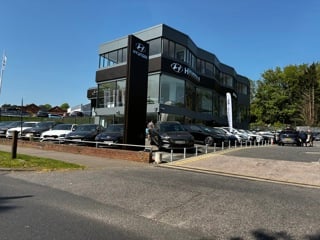
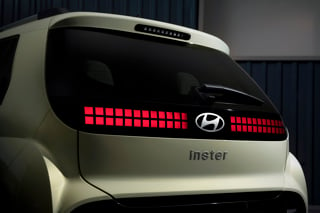
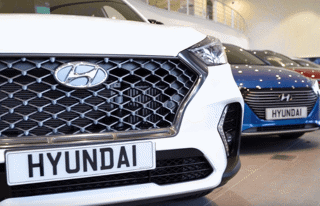
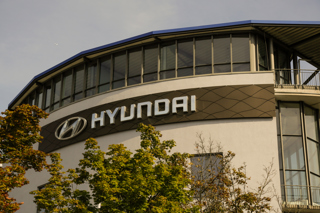
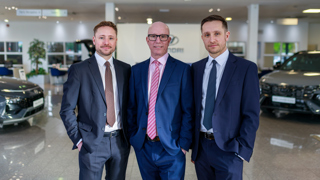











Login to comment
Comments
No comments have been made yet.